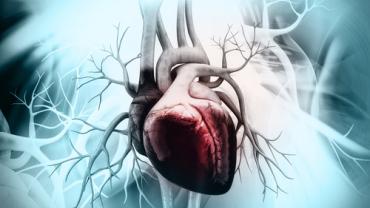
According to a recent review published in Molecules, researchers demonstrate that melatonin may be a promising adjunct in the treatment of heart failure, as it plays an essential role in cardiovascular health. This new, comprehensive review reveals substantial evidence supporting the importance of melatonin supplementation in various cardiac pathologies and disorders, as outlined here.
Epidemiological studies show that pineal secretion as well as circulating melatonin levels are decreased in patients with acute and chronic heart failure. Recent studies suggest serum melatonin levels can be a useful marker for patients with heart failure. In addition, melatonin levels have been shown to predict left ventricular remodeling after acute myocardial infarction and in heart failure patients with hypertensive cardiomyopathy.
Melatonin helps to reverse major pathological processes associated with heart failure by reducing oxidative stress, apoptosis, necrosis, fibrosis, and hypertension. It has been shown to help normalize the circadian rhythm of blood pressure and mitigates nocturnal hypertension in hypertensive men and women receiving antihypertensive treatment. Furthermore, melatonin is shown to help to improve the left ventricular function in heart failure patients with reduced ejection fraction. As a result, these findings demonstrate the role and benefits of melatonin in cardiovascular health.
Other nutritional supplements that may be beneficial for cardiovascular health include carnitine, d-ribose, and CoQ10. These are all nutrients involved in the energy production of the heart. Numerous studies have shown that energy levels in the heart can be dramatically lowered by exercise or decreased blood flow associated with certain cardiac diseases. Depleted cardiac energy pools may be associated with increased cardiac stress, reduced blood flow to the periphery of the body, fatigue, and decreased exercise tolerance. Ribose is the key nutrient for quickly restoring cardiac energy stores. Carnitine supports the delivery of fat to the heart muscle, which is its main fuel source. Significant amounts are only found in dark meats due to high concentration of mitochondria. CoQ10 is a fat-soluble antioxidant that plays a central role in cellular energy metabolism, and the heart has one of the highest concentrations. Internal and dietary amounts may be inadequate to meet the body’s demands. Magnesium and fish oil are also essential nutrients for overall heart function.
By Michael Jurgelewicz, DC, DACBN, DCBCN, CNS